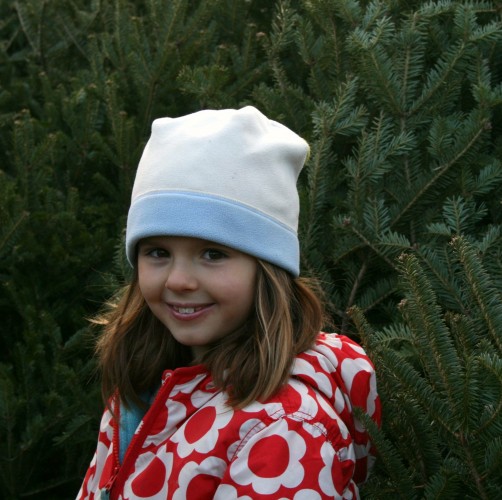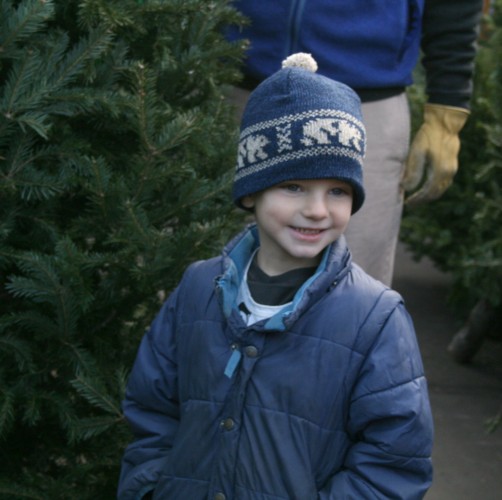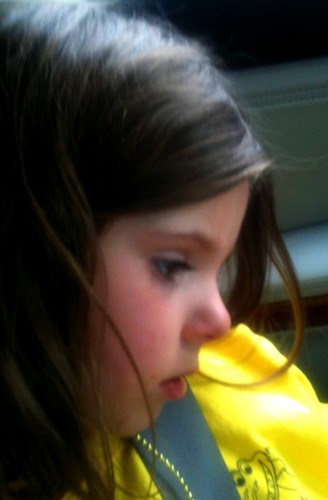Memory. Where to start? I’ve written so much about it. About the mysterious alchemy whereby small moments, inconsequential as we lived them, become significant, weighty memories, full of recollected details. About the way that certain songs can transport me back, instantly and vividly, to the past. About the occasional awareness of the memory of a moment even as I live it, the experience of present and future recollection colliding, the sparks of that collapse flickering in my mind. Also, about the way that I am losing my memory, my mind, the ability to juggle twenty things simultaneously that used to come so easily to me.
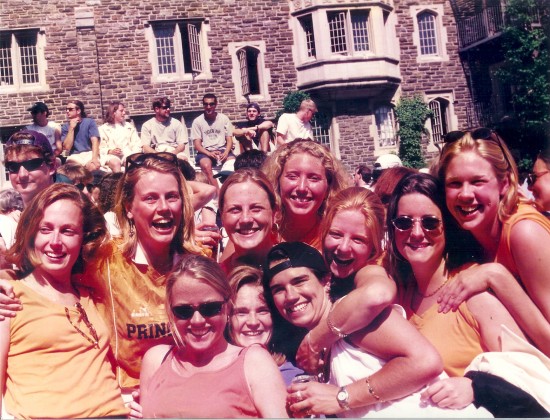
Today, I’m thinking about a specific memory, one that is framed in magnolia petals, flat beer, and laughter. My college senior spring. These weeks shimmer in my memory, so full are they of feeling, laughter, sadness, and promise. They are saturated with the impending farewell we all lived with: every single day was a step closer to leaving the campus we’d grown to love so much. We turned in our theses, the reunions fences and tents went up, and we marched inexorably towards our forced exodus from that sheltered and sunny place we’d spent four years.
Of course there was much of college that was not sunny or happy. There were difficult times, experiences that hurt me, and heartbreak. But when I think of April and May 1996, I’m hard-pressed to remember anything but the joy. It was, perhaps, my first taste of that special kind of joy, the kind that is haunted by the promise of loss, that has become so central to my experience now. This now-familiar happiness was thick with feeling, the reminder that an end was coming a viscous swirl through the fluid of every day.
What were those days like? I sit at my desk now and I can close my eyes and be back there, my mind a kaleidoscope of details recalled with startling lucidity. I turned in my thesis two weeks early, and I forgot to include my middle name on the cover and frontispiece. The entire campus seemed to burst into bloom at once, the magnolias riotous in their celebration of spring. The soundtrack included The Tide is High, Killing Me Softly, and Glory Days. Mission Impossible had just come out in the theaters, we all went to see it, and then spent many nights trying to dance to the main instrumental song from the soundtrack (very difficult). There was a heat wave and we set up baby pools on the back lawn of our eating club, sitting in them and running through sprinklers in the oppressive humidity.
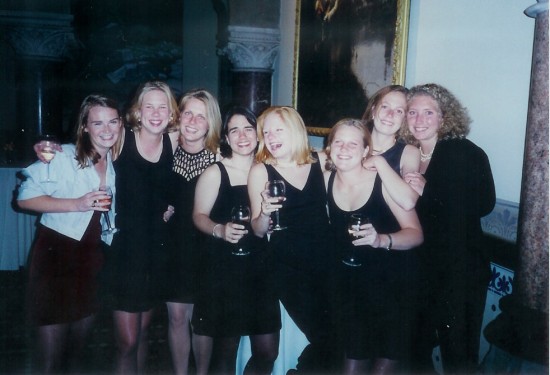
At our eating club’s annual alumni dinner, some male alumni stood up and toasted the days before the club was coed. That was nice. Not. My friend wrote a thesis called I Love the Freedom of It about water imagery in Virginia Woolf’s novels, and we mocked her incessantly for that title. We studied for the final comprehensive exams in our respective majors and then sat for long hours in those beautiful lecture halls, writing in putty-colored exam booklets. As I sat in a wooden chair bolted to the floor, wracking my brain to identify a piece of prose on the exam, I looked at the shafts of sunlight coming in through the windows, watched the dust dance in the light, and felt aware of the centuries of life that this room had held.
Reunions arrived, ringing the bell that our time was truly almost up. On Thursday night we started at Forbes, at the Old Guard reunion, because they had good alcohol. We then made our way through all of the tents, visiting them all before the crowds arrived on Friday. Saturday’s P-Rade was hot and beautiful, and we stood for hours outside of Cuyler Hall, cheering ourselves hoarse. In our matching orange Gap t-shirts we drank warm cans of beer from ripped-open cases stashed on the lawn behind us. When it was our turn to fall into line, we marched across Poe Field field together, arms flung around each others’ shoulders, tears rolling down our faces as President Shapiro welcomed us to the alumni body. That night, wearing blue shorts, a cream J Crew wool cable-knit sweater, and flip-flops I bumped into a long-lost face and unexpectedly rekindled a relationship that had been dormant for two years and that I had presumed dead.
We spent a week driving all over the tri-state area for graduation parties. One night, Quincy and I decided impulsively, around midnight, to leave the party where we were. We drove through the night from the Hamptons to her parents’ house on the Jersey shore, singing Bob Marley the whole way. The next day, we made possibly the most labor-intensive recipe I’ve ever made, artichoke soup. Hand-scraping every single leaf of ten artichokes. Another night, Kathryn‘s mother hosted us, hungover, and we ate vegetables and chugged water, all swearing we would never drink again (right).
Our rooms slowly disappeared into brown moving boxes. Our parents arrived for several nights of celebratory group dinners. We ran from a restaurant in town to the Senior Arch Sing, and because we were late we wound up sitting on the bottom step of Blair Arch, belting out “Eye of the Tiger” with our class as though our lives depended on it. My instinctive use of “we” to describe this time reminds me of The Virgin Suicides, and underlines how critically important my friends from this time of my life were and are. We really were a we then, and while that we has receded to secondary status, it is still a group identity that I draw strength and solace from.
We knew we were coming to the end of something, but also knew we were about begin something. Our real lives. “We prepared our hearts for something drenching and big,” writes Lorrie Moore in Who Will Run the Frog Hospital, and those words always reminded of these weeks of my life. We were liminal creatures, still in college but peering at the great wide open that lay just beyond the threshold that we were barrelling towards. We drank and danced and laughed and loved and left. I am so grateful that my memory has kept such a detailed, fully-dimensioned account of those once-in-a-lifetime weeks.
Originally written in May 2010

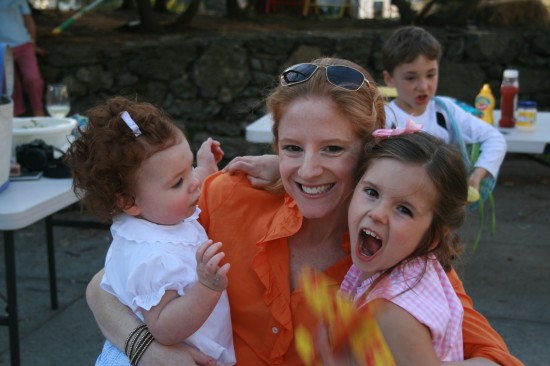 The first photo is from Easter. I’m with my daughter and my goddaughter, and this photograph reminds me of the tight community my family is fortunate to be nestled within.
The first photo is from Easter. I’m with my daughter and my goddaughter, and this photograph reminds me of the tight community my family is fortunate to be nestled within. 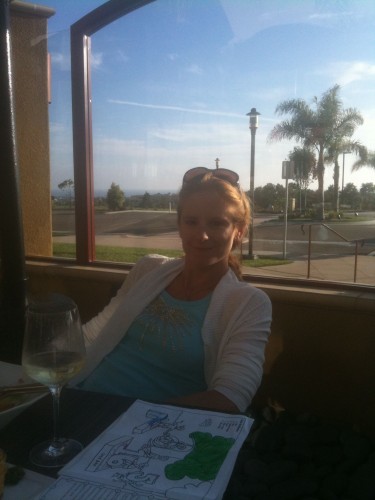 The second photo is one that Grace took of me one evening in
The second photo is one that Grace took of me one evening in 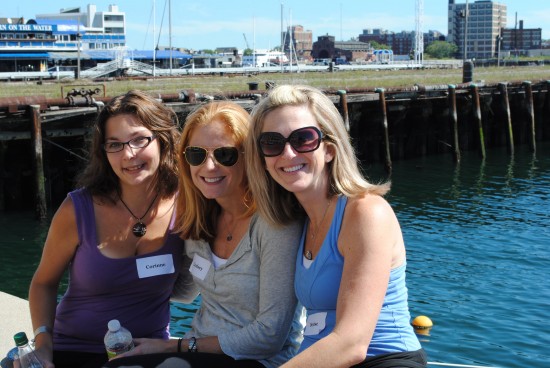 The third photo is from the
The third photo is from the 